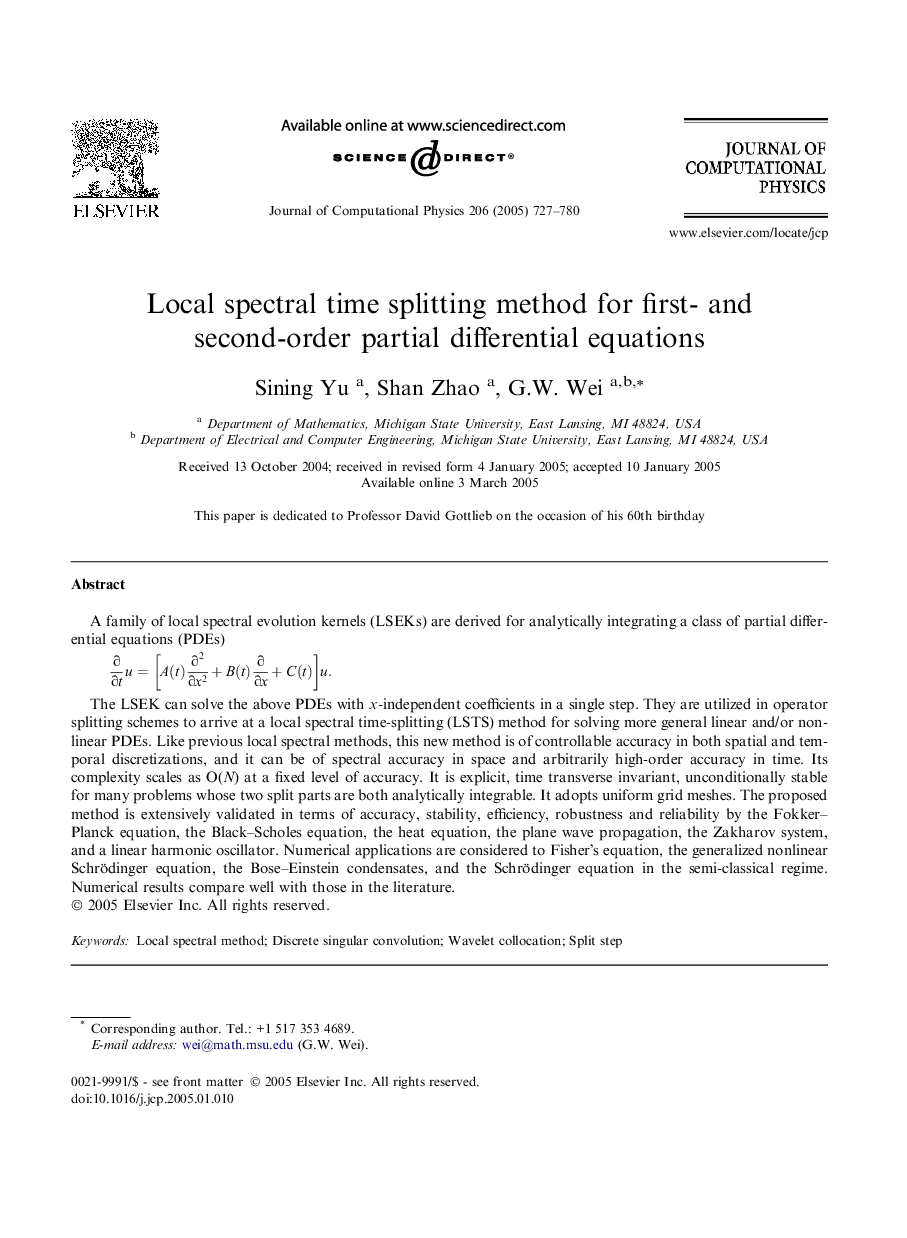| Article ID | Journal | Published Year | Pages | File Type |
|---|---|---|---|---|
| 10357911 | Journal of Computational Physics | 2005 | 54 Pages |
Abstract
A family of local spectral evolution kernels (LSEKs) are derived for analytically integrating a class of partial differential equations (PDEs)ââtu=A(t)â2âx2+B(t)ââx+C(t)u.The LSEK can solve the above PDEs with x-independent coefficients in a single step. They are utilized in operator splitting schemes to arrive at a local spectral time-splitting (LSTS) method for solving more general linear and/or nonlinear PDEs. Like previous local spectral methods, this new method is of controllable accuracy in both spatial and temporal discretizations, and it can be of spectral accuracy in space and arbitrarily high-order accuracy in time. Its complexity scales as O(N) at a fixed level of accuracy. It is explicit, time transverse invariant, unconditionally stable for many problems whose two split parts are both analytically integrable. It adopts uniform grid meshes. The proposed method is extensively validated in terms of accuracy, stability, efficiency, robustness and reliability by the Fokker-Planck equation, the Black-Scholes equation, the heat equation, the plane wave propagation, the Zakharov system, and a linear harmonic oscillator. Numerical applications are considered to Fisher's equation, the generalized nonlinear Schrödinger equation, the Bose-Einstein condensates, and the Schrödinger equation in the semi-classical regime. Numerical results compare well with those in the literature.
Related Topics
Physical Sciences and Engineering
Computer Science
Computer Science Applications
Authors
Sining Yu, Shan Zhao, G.W. Wei,
